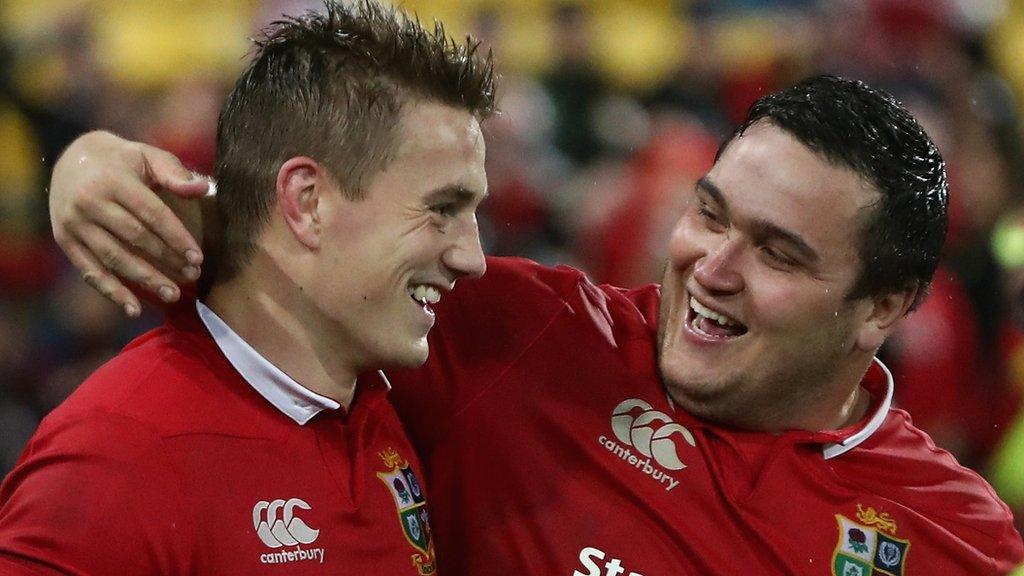British & Irish Lions third Test: What makes the All Blacks great?
- Published
- comments
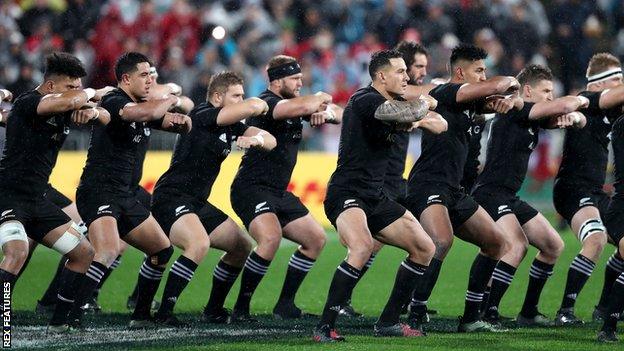
The haka contains the phrase "this is your time, this is your moment"
New Zealand v British and Irish Lions - third Test |
|---|
Venue: Eden Park, Auckland Date: Saturday, 8 July Kick-off: 08:35 BST |
Coverage: Follow the decisive third Test live on the BBC Sport website from 07:30 BST |
When the British and Irish Lions run out to face New Zealand in Saturday's decisive third Test, they won't just be facing an iconic team who have transcended their sport, but also a family that has dug deep into Maori culture and contemporary psychology in order to create an environment geared to greatness.
The All Blacks - who have won the last two World Cups - are keenly aware of their whakapapa, the genealogy and lineage linking them back to a century of excellence.
But more practical behaviours - from the team cleaning changing rooms to its 'no egos' policy - also underpin the greatest winning machine on the planet.
New Zealand were stunned by last Saturday's 24-21 defeat in the second Test, despite the mitigating factor of being down to 14 men for nearly an hour. So what are the qualities the All Blacks will rely on to ensure they confirm their status as the greatest rugby team in the world on Saturday?
The best team in world sport?
The All Blacks - New Zealand's national pride and joy - are arguably the most successful sports team in history. It's a grandiose claim, but one their record supports.
Over the century since the 1905 Originals first dazzled the British Isles, New Zealand have won an extraordinary 77% of all encounters. Ranked world number one for twice as long as the rest of the world combined, they have only ever been as low as number two.
Of the home nations, Scotland have never beaten the All Blacks while Wales last beat them in 1953 - 64 long years ago. They have won the Rugby World Cup three times - and twice in a row - the only team to do so.
They currently hold all the silverware it is possible to own in their sport. They are, by any measure, a phenomenon. But last Saturday, they lost.
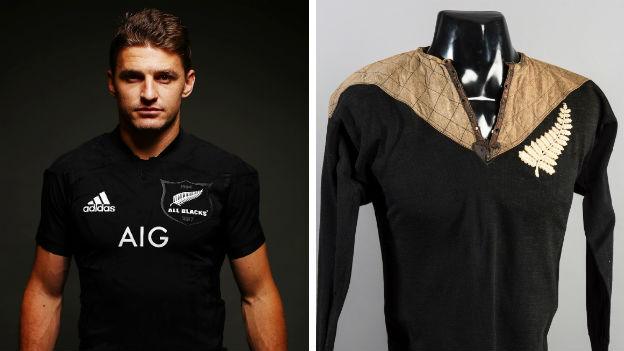
For more than a century, New Zealanders have put on the black shirt with the silver fern on the chest and expected to win
Fear of failure
Before Saturday's defeat, the All Blacks had not lost to the Lions since the second Test of 1993. After that match, captain Sean Fitzpatrick shut the locker room door and had his team absorb what "defeat feels like, to really feel it", so that they would do all they could to avoid experiencing it again.
Fear of failure, says Fitzpatrick, is a key driver for the All Blacks. After all, the team represent the expectations of the most informed and critical rugby public in the world. They are a nation, as an All Blacks doctor once put it, of "five million selectors".
Committed to being the best team in the world and to winning every game, the All Blacks don't have the luxury of losing. In 1993, this fear seemed to work. The All Blacks crushed the Lions 30-13 in the third and deciding Test of the series.
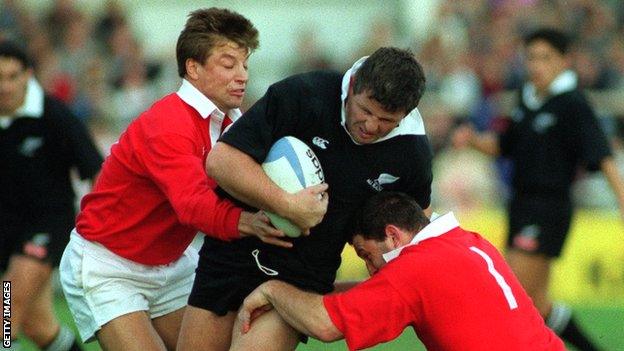
Sean Fitzpatrick, now a TV pundit in the UK, used a fear of failure to fire up his team in 1993
Embrace expectation
Fear of failure, though, is yesterday's sports science. The team's mental skills coach, Gilbert Enoka, is part shrink, part 'stretch', part cultural custodian, and plays an instrumental role in shaping the culture of this team. Rather than the fear of failure, he talks more about "embracing expectations", "walking towards the pressure", and developing "gratitude" for the opportunity.
Tests, in the lingua franca of the All Blacks, are opportunities for the players to "express themselves". For the team, it is about creating a positive atmosphere that encourages endeavour and initiative.
Better people make better All Blacks
It wasn't always this emotionally intelligent. In 2004, a disastrous end-of-series team drinking session prompted Graham Henry and his coaching team to reboot the world's most successful sporting culture.
Central to that was the phrase, 'Better People Make Better All Blacks' as they sought to develop the character and leadership of the players on the field so that they would make better decisions. There was an emphasis on personal character, initiative and the idea of the team.
"It's not just about winning," coach Steve Hansen told the Guardian, "It's about maximising the talent and making sure that in the rest of his life, he has the tools to be a decent person." It worked.
From 2004 to 2014, the All Blacks went from a 75% win ratio - already the world's best in any sport - to an extraordinary victory rate of almost 95%. Better people, it seems, finish first.
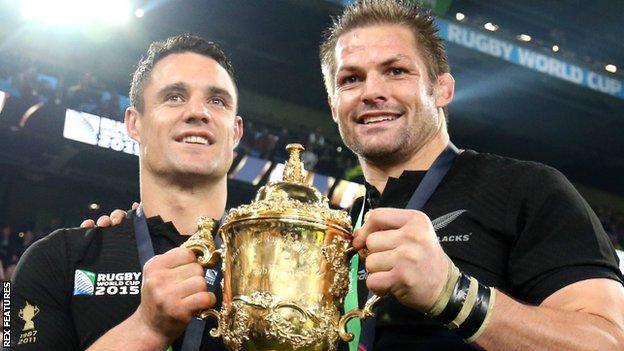
All-time greats Dan Carter and Richie McCaw were at the heart of a team that become almost unbeatable
The All Blacks are a 'whanau'
Enoka, as mental skills coach, places special emphasis on building belief and belonging. The team are considered a whanau - the Maori word for family - with an ethos that focuses on connection, contribution, candid communication and clarity of action.
Most importantly, players are encouraged to take 'ownership'. In assistant coach Wayne Smith's words, "people will rise to a challenge if it is their challenge".
Rather than an autocratic coaching style, this coaching group seek to become a 'resource' for the players. After all, in the end it is the team who must play. Former head coach Henry even had to give up his stirring team talks. By that point, it is the team's team.
Performance = capability x behaviour
The emphasis is on creating the environment - physical and psychological - for high performance to happen, which is captured by the equation 'Performance = Capability x Behaviour'.
That is, the level of the team's performance is equivalent to their talent, which is multiplied by the way they behave: the way they prepare, the way they connect, the way they communicate, commit, and contribute.
Top teams focus on creating the right culture to shape winning behaviours. The All Blacks just seem to do it better than anyone else.
Read Head/Blue Head
Former England boss Sir Clive Woodward talks of T-Cup: Thinking Correctly Under Pressure. The All Blacks talk about Red Heads and Blue Heads.
After New Zealand were bundled out by France in the quarter-final of the 2007 World Cup, the team brought in Ceri Evans, a forensic psychologist, who introduced a simple strategy for dealing with pressure: Red Head/Blue Head.
Simply put, Red Head is choking. It is a future-focused panic - "we have to score, we have to score!" - which leads to overreaching, poor decision-making, poor task focus. The opposite is Blue Head; being clear and accurate, on task, and in the moment - making sure the mind is in the game.
To shift from Red to Blue, players use simple anchors or triggers. All Blacks captain Kieran Read - who will play his 100th Test on Saturday - looks at all four corners of the stadium to regain the 'big picture'. Players are taught to stay in the moment and trust the process.
To see the result of that approach, watch their last-minute 24-22 win over Ireland in 2013, when they went nearly the length of the field in a sustained attack after the end of normal time to score the decisive try.
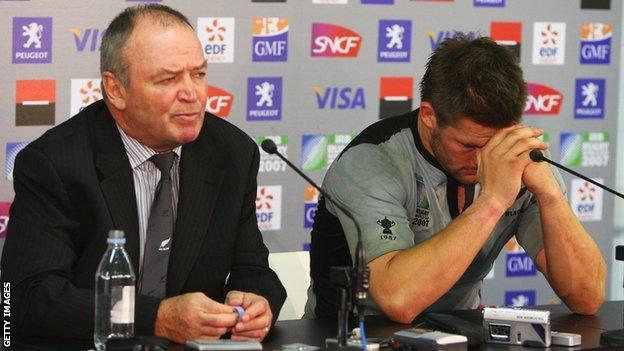
The likes of Graham Henry and Richie McCaw had to learn some painful lessons after 2007
No egos
There is no room for disruptive influences in the All Blacks set-up. "No egos" is the polite way of putting it. The New Zealand team use a rather more blunt phrase, borrowed from Australian rules football team Sydney Swans - one that cannot be repeated here. Such bluntness does the trick.
Head coach Steve Hansen once said: "Take a bucket of water, put your hand in it, now take it out. That's how long it takes to replace you." Disruptive influences do not last long in this environment. As they say: "No one is bigger than the jersey."
Leave the jersey in a better place
Maori have a fabulous concept, whakapapa. It is the genealogy, the lineage of a person, a family, a tribe, a team. Deep within the All Blacks' famous haka is the phrase, "this is your time, this is your moment". Every All Black understands he is part of a long lineage and that this is his time to shine, his chance to make his contribution.
Every player's fundamental purpose is to "leave the jersey in a better place", on the field and off, and in doing so, to achieve mana - greatness. Protecting and enhancing the legacy of the jersey is the simple idea at the heart of this remarkable outfit.
That is why Saturday matters. It will always matter in the history of this team, the whakapapa of this people.
James Kerr is the author of Legacy: What The All Blacks Can Teach Us About The Business Of Life.
- Published6 July 2017
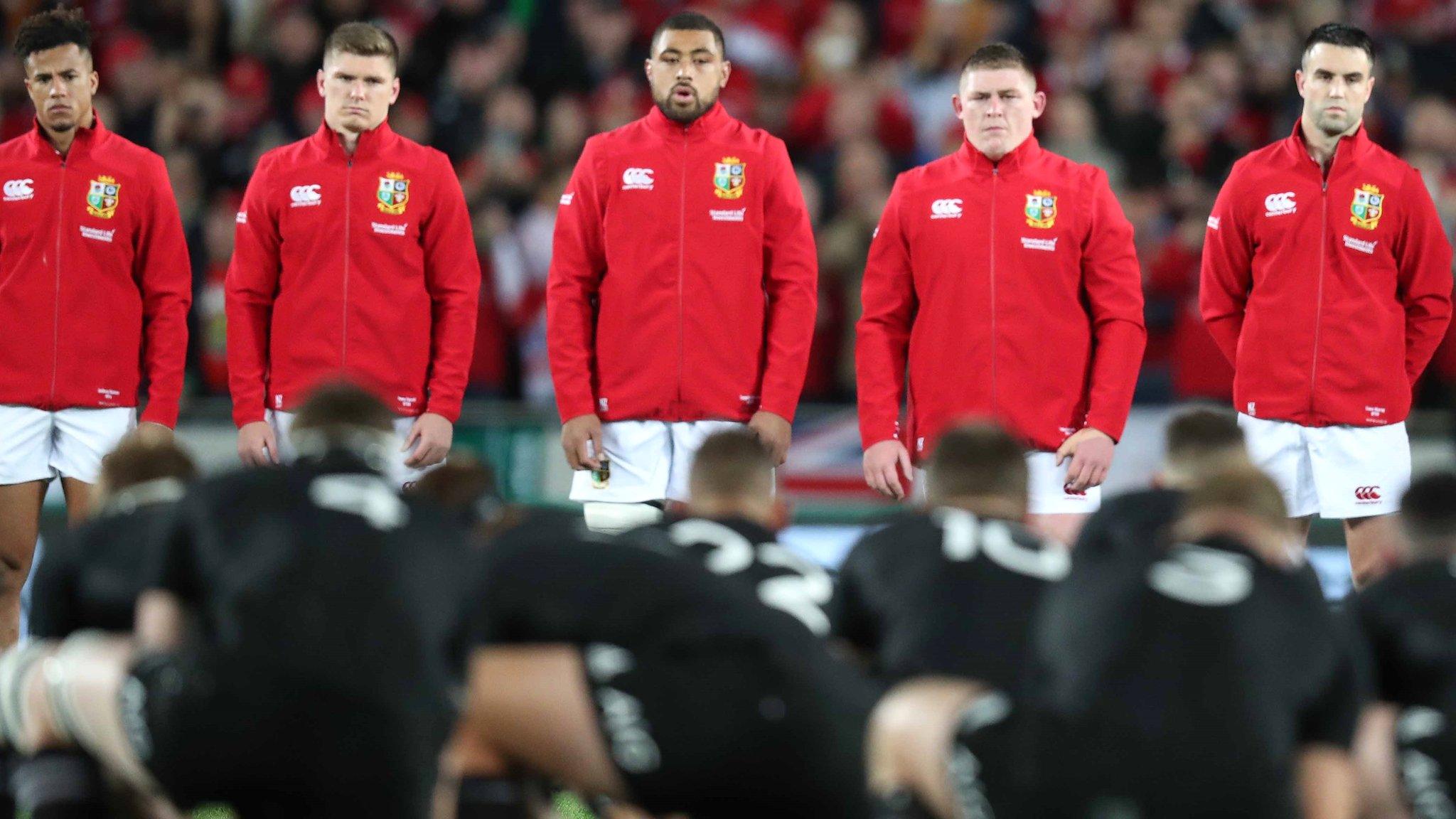
- Published6 July 2017
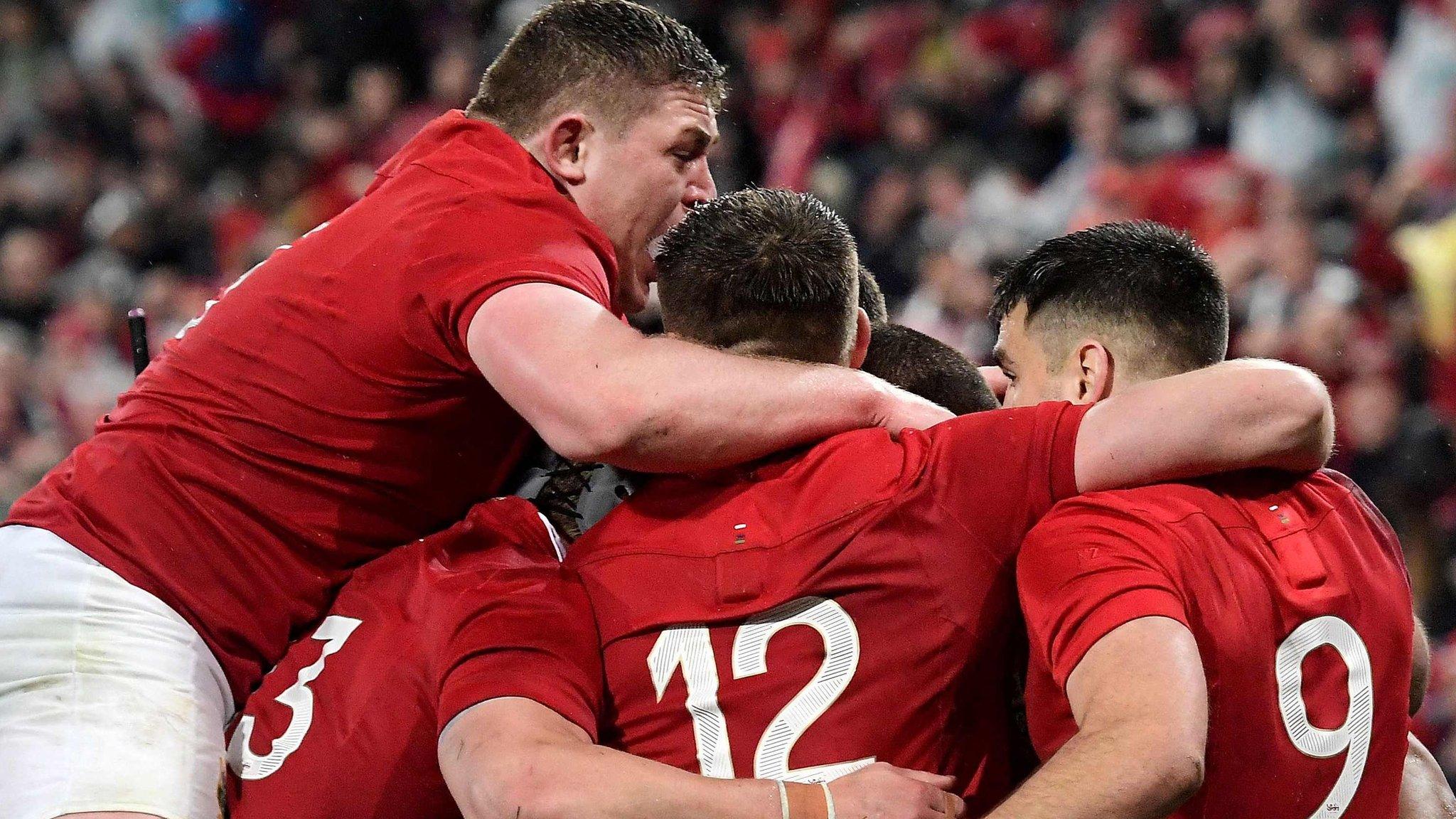
- Published5 July 2017

- Published5 July 2017

- Published4 July 2017
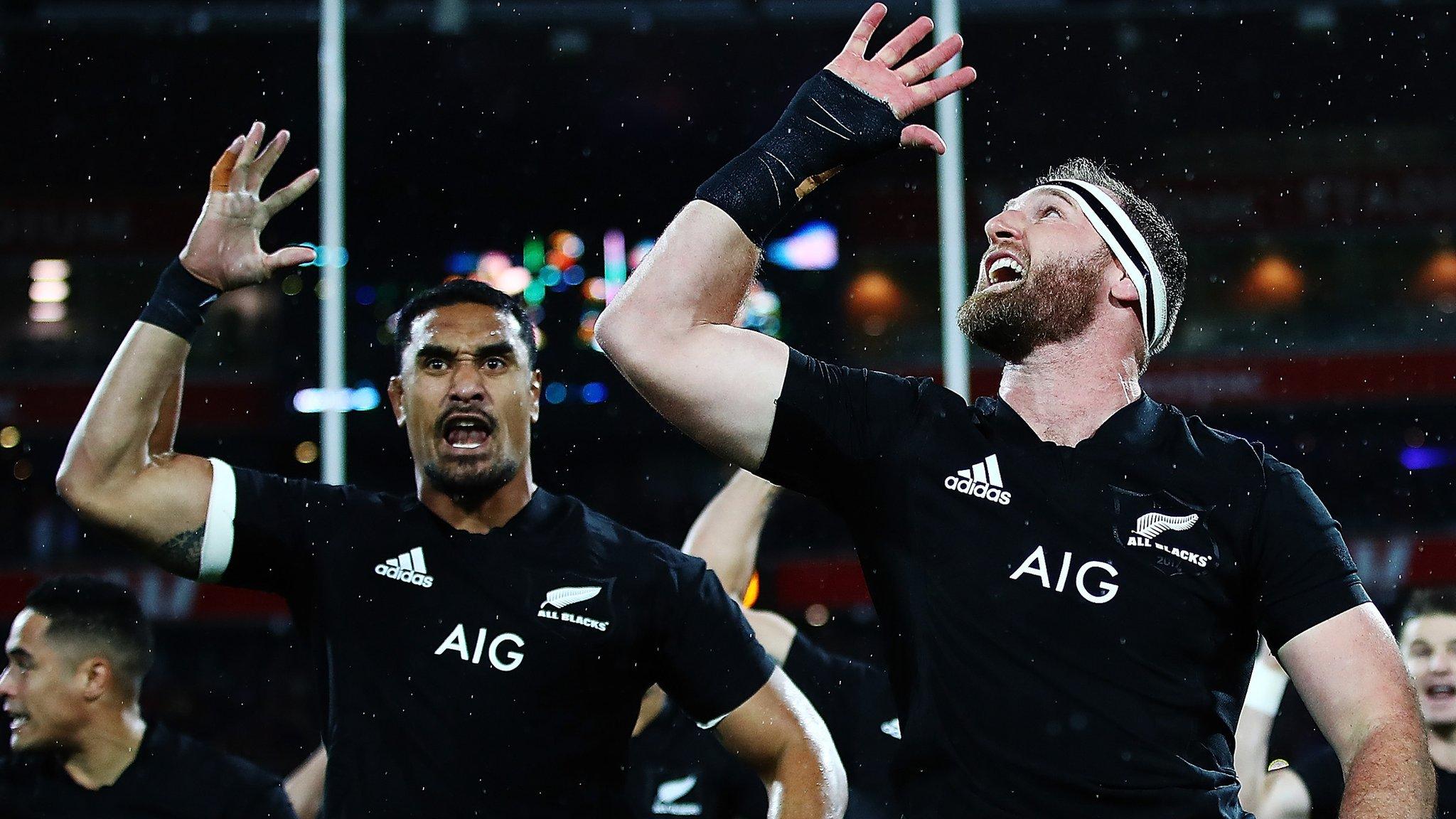
- Published1 July 2017
